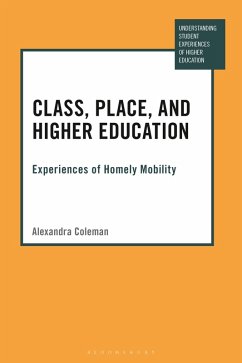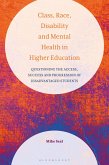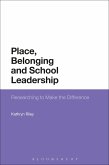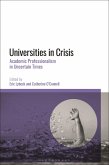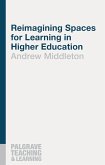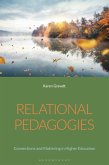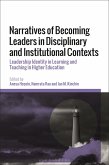Higher education is seen to be a means to "the" good life and is a dominant way societies distribute hope for social mobility. But does higher education deliver on its promise? This book attends to the hopes, experiences, and trajectories of working-class students and graduates from Western Sydney - an area that is imagined, from the outside, to be a place of lack and stagnation, the "other" Sydney. This book challenges the myth that participation in higher education necessarily leads to upward social mobility and traces how the rewards of higher education are unevenly distributed.
It considers how visions of a good life are class differentiated and makes an argument for the significance of place when examining experiences of higher education. Rather than focus on university as a means to becoming middle class, Class, Place, and Higher Education examines how university becomes a means to "a" good life, not "the" good life, a good life that is embedded in place, in working-class places like Western Sydney, and one that becomes more complex and ambivalent through the process of going to university.
Through an attention to the existential and social dimensions of mobility, Alexandra Coleman develops the term "homely mobility" to describe the pull of people and place, and small-scale degrees of mobility in place - to a better street, the suburb next door, the university down the road. Structural inequalities are an embodied dimension of social being and action, and through the lens of homely mobility, this book affords insights into broader processes of social reproduction and transformation.
It considers how visions of a good life are class differentiated and makes an argument for the significance of place when examining experiences of higher education. Rather than focus on university as a means to becoming middle class, Class, Place, and Higher Education examines how university becomes a means to "a" good life, not "the" good life, a good life that is embedded in place, in working-class places like Western Sydney, and one that becomes more complex and ambivalent through the process of going to university.
Through an attention to the existential and social dimensions of mobility, Alexandra Coleman develops the term "homely mobility" to describe the pull of people and place, and small-scale degrees of mobility in place - to a better street, the suburb next door, the university down the road. Structural inequalities are an embodied dimension of social being and action, and through the lens of homely mobility, this book affords insights into broader processes of social reproduction and transformation.

